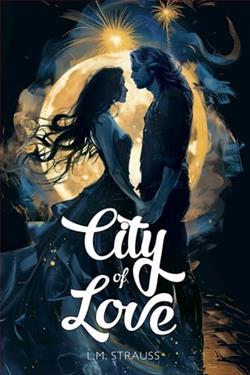Martial Peak Reviews
City of Love by L.M. Strauss delicately explores the complexities of love, life, and the bonds that tie us together against the enchanting backdrop of Paris. Strauss delves deep into the pulse of the city, capturing its essence through a narrative that intertwines romance, personal growth, and the enchantment that only Paris could offer. The novel not only takes the reader on a geographical journey but also on an introspective voyage that explores the depths of human connections and the choices that define us.
The novel is centered on the protagonist, Elise Durand, an aspiring artist who finds herself at the precipice of an uninspired life in London. Seeking rejuvenation and a fresh start, she migrates to Paris, thus setting the stage for a transformative journey. Paris, as Strauss portrays it, is not just a city but almost another character in the book—dynamic, multifaceted, and central to Elise's personal evolution. The narrative is rich with descriptions of winding streets, historic cafes, and the seductive allure of the Seine, each detail painted with a brush that seems dipped in love for the city.
Elise’s story is one of discovery and acceptance. Through her eyes, we encounter a diverse cast of characters, each of whom contributes to her metamorphosis and deepens the narrative’s exploration of thematic elements. There's Jacques, the quintessential Parisian who challenges Elise's preconceptions about love; Mireille, her neighbor with a tragic past; and Sophie, the friend who represents what Elise might become if she surrenders to cynicism. Their stories, interwoven with Elise's, create a rich tapestry that exemplifies Strauss's skill in character development and dialogue.
One of Strauss’s exceptional skills is her ability to weave existential questions into the fabric of her narrative without weighing it down. Questions of purpose, the pursuit of passion, and the essence of lasting love are explored with a delicate touch, allowing the reader to ponder them long after turning the last page. Furthermore, Strauss employs a storytelling method that feels intimate and confessional; reading City of Love feels akin to perusing a diary, one brimming with profound insights and emotional vulnerability.
In terms of thematic depth, the novel richly discusses the idea of love as seen through various lenses—romantic, platonic, and self-love. Each type is dissected and reassembled through Elise’s experiences and her interactions with the secondary characters. The novel is particularly poignant in its examination of self-love and growth. As Elise navigates her new life, she learns to reconcile her past experiences with her present ambitions, which is compellingly depicted in her journey as an artist finding her voice in the city’s famed artistic landscape.
However, while Strauss excels in character and thematic development, the plot occasionally suffers from predictability, particularly in the unfolding of Elise’s romantic entanglements. Some readers may find parts of the storyline, especially the romantic resolutions, to be somewhat expected and therefore less impactful. Despite this, the overall narrative remains engaging due to the depth of character exploration and the lyrical prose that captures the allure of Paris with vivid imagery and emotion.
Moreover, the detailed settings in City of Love are worthy of particular mention. Strauss evidently did her research, as illustrated by her precise descriptions of Parisian landmarks and lesser-known locales that only a true Paris-lover would appreciate. This meticulous attention to detail helps to transport the reader directly into the heart of the city, making the novel a veritable love letter to Paris.
To conclude, City of Love by L.M. Strauss is a tender and reflective novel that offers much more than a straightforward romance. It is a meditative exploration on the nature of love, the quest for self-discovery, and the profound effect a city can have on an individual. While it may tread familiar paths in terms of romance plotlines, its strengths lie in the poetic depiction of Paris and the intricate portrayal of internal battles and triumphs. Readers looking for a story that encapsulates the allure of new beginnings in a storied city will find much to cherish in Strauss’s lovingly crafted narrative.
























Reviews 0
Post a Reviews: